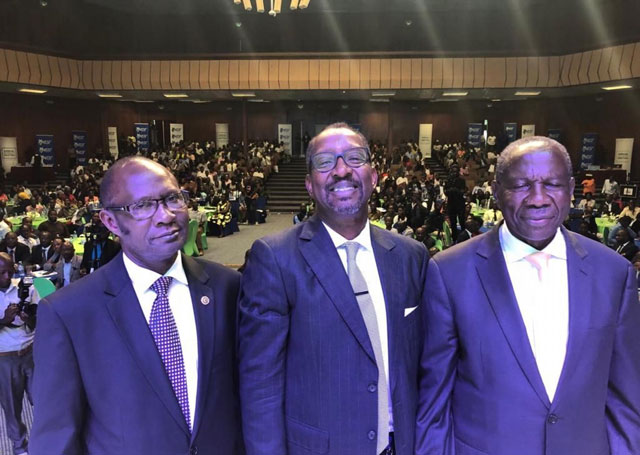
Kampala, Uganda | THE INDEPENDENT | The National Social Security Fund (NSSF) has shown interest to collect contributions for the National Health Insurance scheme.
The National Health Insurance Scheme Bill 2019 is meant to introduce a Universal Health Care to improve health outcomes and expand access to essential health care services for all people in need.
The scheme will pool resources where the rich and the healthy will subsidize the treatment for the poor, young and elderly from both formal and informal sector.
Appearing before the Parliamentary committee on health which is currently scrutinizing the bill today, NSSF led by the Deputy Executive Director Patrick M Ayota say they will focus on strengthening the public health care delivery system to ensure that more than 80% of Ugandans living in rural areas have access to good health through equipping existing health structures.
He says in order to resolve infrastructure inadequacy, a new fund will be set up and earmarked only for establishment, expansion, maintenance of healthcare capital infrastructure
He says, for instance, they will strengthen health centre III in the country, and they envision that within three years, over 300 health centre III will be fully equipped by the 8th year, all health facilities will be performing to its capacity.
They have proposed a reduction of contributions from workers and employers for the proposed National Health Insurance Fund from 5% to 2%.
The bill in its current form proposes that workers in the formal sector contribute 4% of their monthly salary to the scheme and an additional 1% be provided by the employer. NSSF is proposing that 1% is contributed by the employee and 1% by the employer to minimize administrative and overhead costs.
NSSF also proposed a minimum usage fee of 1% of the proposed minimum wage from the informal sector which is about 130,000 shillings per month.
Asked on the overload with the retirement benefits, Ayota says they are experienced and already have structures.
He says this will focus on financing medical cost on a per-service basis and strengthening the public health care delivery system.
Regarding collection from the informal sector, Ayota told MPs that they would triangulate the database within the National Identity and Registration Authority (NIRA) and the telecom companies that would yield a list of Ugandans and their dependents with the respective National IDs and telephone contacts.
Ayota says the Informal sector workers would contribute through their mobile phones and the charge would vary depending on the number of dependents such a member has.
NSSF proposes a Healthcare Capital Committee composed of the Permanent Secretaries of the Ministry of Health, Ministry of Gender, Ministry of Finance, Housing, the Uganda Medical Association and NSSF to operationalize the proposal.
He says any excess funds would be invested by NSSF to meet the administrative overheads, including the operations of the personnel to administer the Fund.
According to NSSF, Ugandans who are currently catered for in other schemes will see their relatives and everyone else not lack health care whether in the rural area.
The Health committee chairperson Michael Bukenya said the NSSF proposal was a unique model and as a committee they would study it. He says this focuses on strengthening the health sector.
******
URN
 The Independent Uganda: You get the Truth we Pay the Price
The Independent Uganda: You get the Truth we Pay the Price


